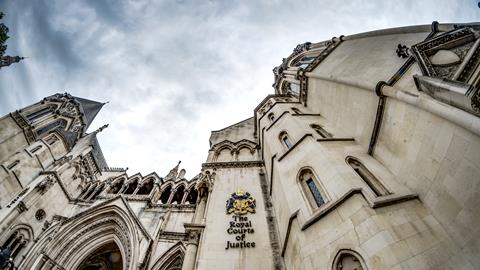Almost half of Kazakh mining group Eurasian Natural Resources Corporation (ENRC)’s $290m claim against the Serious Fraud Office and international firm Dechert was ‘wiped out’ when amendments were refused, the Court of Appeal has heard in the latest twist in a seven-year case.
ENRC was refused permission to amend its claim for the ‘phase 2’ trial which will deal with loss which, the company argued, meant it could not claim around $128m, including interest.
ENRC is suing the SFO and Dechert over the loss it says it suffered as a result of the SFO’s criminal investigation into the mining company and its subsidiaries. In an earlier trial, the court found the SFO’s criminal investigation, which was closed in 2023, would not have been opened but for the SFO’s wrongdoing and it was an ‘effective cause of the loss’ claimed by ENRC for unnecessary work, costs and wasted time management.
The phase 2 trial will deal with loss and is listed for April 2026. Prior to the first case management hearing, ENRC sought to amend its claim to include losses based on the value of ENRC’s shareholding in some of its subsidiaries. The amendment was refused; in the latest hearing ENRC is appealing the refusal.
Read more
For ENRC, Nathan Pillow KC said in written submissions: ‘A fundamental legal error in the judgment is that the judge applied the wrong test to the question of when amendments should be refused on disclosure grounds. If we are right there is no prejudice to the other side, if we are wrong there is no prejudice to the other side,’ he told the court.
Pillow said the judge’s decision ‘wrongly denies ENRC its right of access to the court to seek to recover US$128m of loss caused by very serious established wrongdoing by setting an impossible hurdle for an applicant seeking permission to amend’ and ‘the prejudice to ENRC in being refused permission to raise them outweighed any prejudice to the defendants in having to defend them at trial’.
The SFO and Dechert argued the judge had not made an error in his approach.
Jonathan Hough KC, for the SFO, said there was ‘no good reason for the amendments being made so late’.
Hough told the court the judge reached a conclusion ‘well within a reasonable range of judgments’. He added: ‘The alternative of leaving us to deal with these amendments at trial without experts having the opportunity to consider any material at subsidiary level would be unfair and unsatisfactory in respect of a very large claim. What the judge has to do is try to balance considerations of the effect on each party…in my submission the judge does that’.
Lord Justice Phillips, Lord Justice Nugee and Lord Justice Jeremy Baker reserved judgment.



























